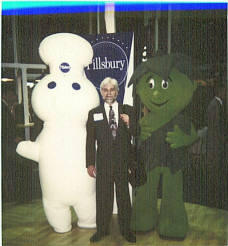As the various posts this week might indicate, it hasn't been an auspicious start to the new year, here at The Garlic.
Still feeling under-the-weather, though the more significant, messy parts of the Head Cold have passed, we're not out-of-the-woods just yet (and battling to keep the dreaded sinus infection at bay).
So, rather than throwing up another, bland "Editor's Note", we thought we give you a little more, something new, something different (perhaps), a bang-for-your-buck, so to speak.
We'll hip you to the first (perhaps only) American Indian Jazzman.
Jim Pepper.
From Scott Yanow's All Music Guide;Jim Pepper will always be best remembered for his popular recording of "Witchi-Tai-To," a peyote chant put to music. Pepper, who is definitively profiled in the hour-long documentary Pepper's Pow Wow (available on video), infused advanced jazz with the influence of his Native American heritage. The son of a father who also played saxophone, Pepper early in life loved to tap dance. He largely taught himself both tenor and clarinet, developing a soulful sound and keeping his style open to both free expression and the influence of world music. Pepper grew up in Oklahoma and moved to New York in the mid-'60s. He was a major part of one of the first fusion groups, Free Spirits, which made a record for ABC/Paramount in 1967. Pepper, who played in the "Everything Is Everything" band in the late '60s, was encouraged by Ornette Coleman and Don Cherry to put more of his heritage into his music. Jim Pepper worked with Cherry, Dewey Redman, Charlie Haden's Liberation Music Orchestra, and his own bands. He recorded with Paul Motian and Bob Moses, and led a session apiece for Europa (1984) and Enja (1987). Pepper passed away at the age of 50 from lymphoma.
Jim Pepper, on Wikipedia;Jim Pepper was an American jazz saxophonist, composer, and singer of Native American ancestry.
[Snip]
In his own projects, he recorded with Cherry, Naná Vasconcelos, Collin Walcott, Kenny Werner, John Scofield, Ed Schuller, Hamid Drake, and others. His CD Comin' and Goin' (1983) is the definitive statement of Pepper's unique "American Indian jazz" with nine songs played by four different line-ups. He worked also with the Liberation Music Orchestra, Paul Motian' s quintet, Bob Moses, Marty Cook, Mal Waldron, David Friesen, and Amina Claudine Myers, and toured Europe intensively.
Pepper died in 1992, of lymphoma.
[Snip]
In 1998, composer Gunther Schuller arranged, conducted and recorded The Music of Jim Pepper for symphony orchestra and jazz band. Pepper was posthumously granted the Lifetime Musical Achievement Award by First Americans in the Arts in 1999, and in 2000 he was inducted into the Native American Music Awards Hall of Fame. In 2005 the Oregon Legislative Assembly honored the extraordinary accomplishments and musical legacy of Pepper.[2]
In April 2007, the National Museum of the American Indian in Washington, D.C. accepted Pepper's saxophone and hat at a ceremony honoring his music and legacy.[3]
And now, the infectious 'Witchi Tia To'
Jim Pepper -Witchi Tia To
Jim Pepper Lives!
Jim Pepper House
Jim Pepper Legacy in Recorded Music: a Treasure Chest
Friday, January 09, 2009
Witchi Tia To
Subscribe to:
Post Comments (Atom)



1 comment:
Hey man -- thanks for making the connection to my Jim Pepper Lives! site... really nice to see people comin' and goin' (haha) to the site and helping to spread the word about this amazing man and his amazing music.
All Power to the Sax!
- Bill Siegel
www.jimpepperlives.wordpress.com
Post a Comment